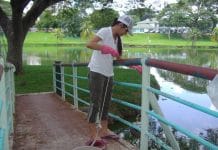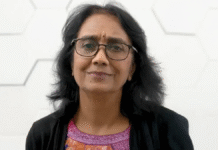BY ASMAHANIM AMIR
THE largest Biobank in Southeast Asia that holds millions of blood and urine specimens for research studies is based on the Medical Molecular Biology Institute (UMBI),
Universiti Kebangsaan Malaysia Medical Centre (UKMMC).
Pro Vice Chancellor of UKM Kuala Lumpur Campus, Prof Datuk Dr A Rahman A Jamal (pix) said Biobank UMBI has 35 liquid nitrogen tanks with temperatures -196 degrees Celsius and 38 refrigerators with temperatures of -80 degrees Celsius.
“We have saved specimens of more than 120,000 volunteers across Malaysia. Each individual, we keep 45 blood tubes. The total number of blood tubes here (Biobank) is over six million tubes.
“All the specimens in this Biobank are for research in various fields of medicine. This is a valuable source of research for our country. We need to be proud of the Biobank UMBI being a reference at the international level,” he said.
He said Biobank UMBI establish in line with The Malaysian Cohort project, which is Malaysia’s largest health screening project approved by the Cabinet in 2005. A Rahman said the biospecimen stored there (Biobank) is very valuable as research can be done in various fields.
“For example, if we want to study about the risk of genetics about diabetes (diabetic), we need big specimens. We need as many as 3,000 blood samples of diabetic patients and 3,000 blood samples of non-diabetes individuals to compare.
“So, if we don’t have a Biobank, we had to start with the collection of the samples. Now we already have a sample stored in Biobank. So, anyone who wants to do this kind of research does not need to take a long time,” he explained.
A Rahman explained that the advantage of this Biobank is that Malaysia has three main ethnic groups – Malays, Chinese and Indians. “We can make a direct comparison of the differences in the status of the disease of these three ethnic groups from what we see as physical and biological angles. There are not many other countries that have this kind of potential,” he said.
He is proud that UKM is mandated to lead The Malaysia Cohort and this Biobank is in UKM. “To me, the value we see is how we provide opportunities for researchers from all over the country, whether the Public or Private University or the industry can jointly pinpoint this Biobank from the analysis point, whether it is a big data analysis or an analysis of the species that we there is,” he said.

















